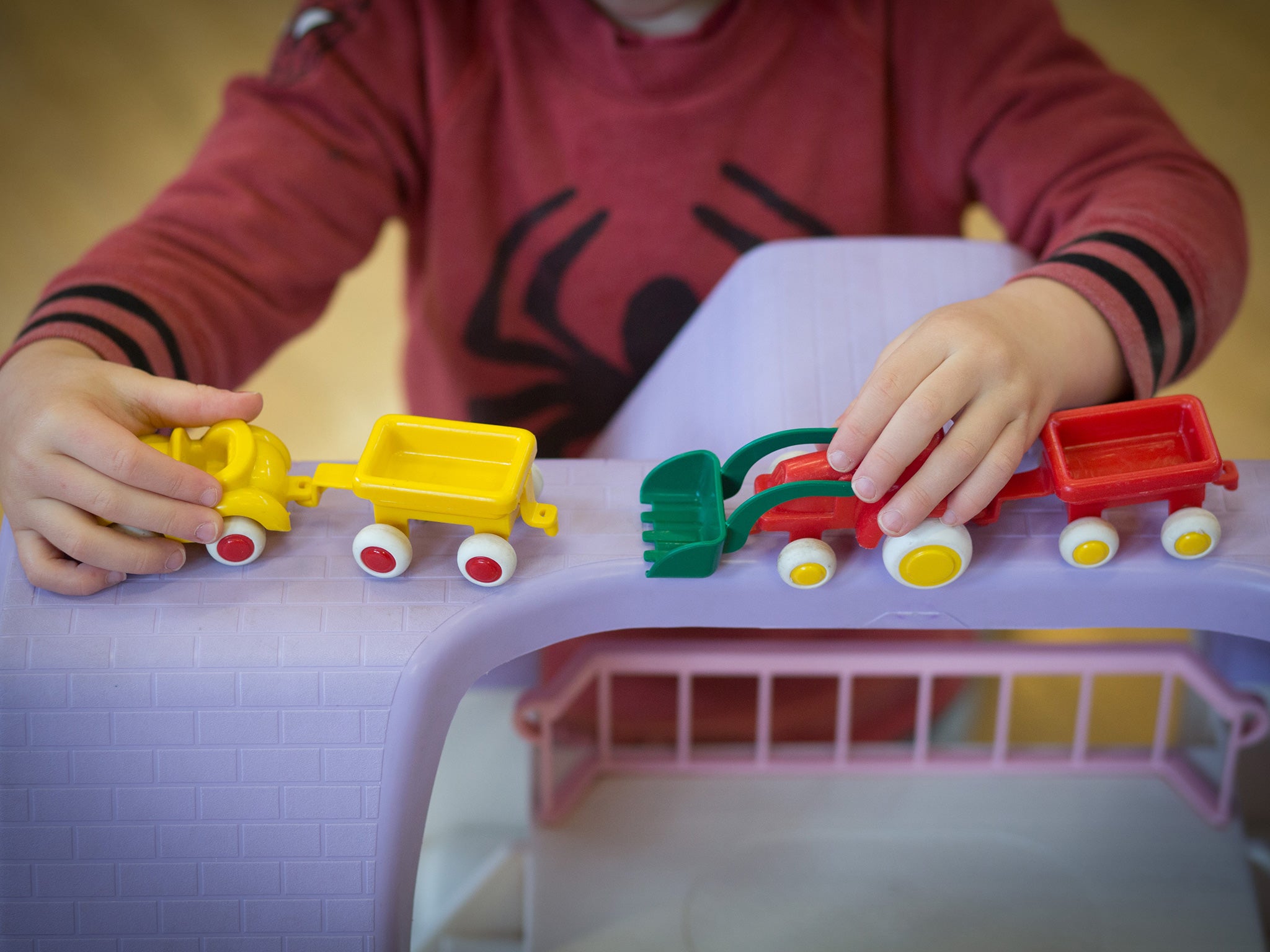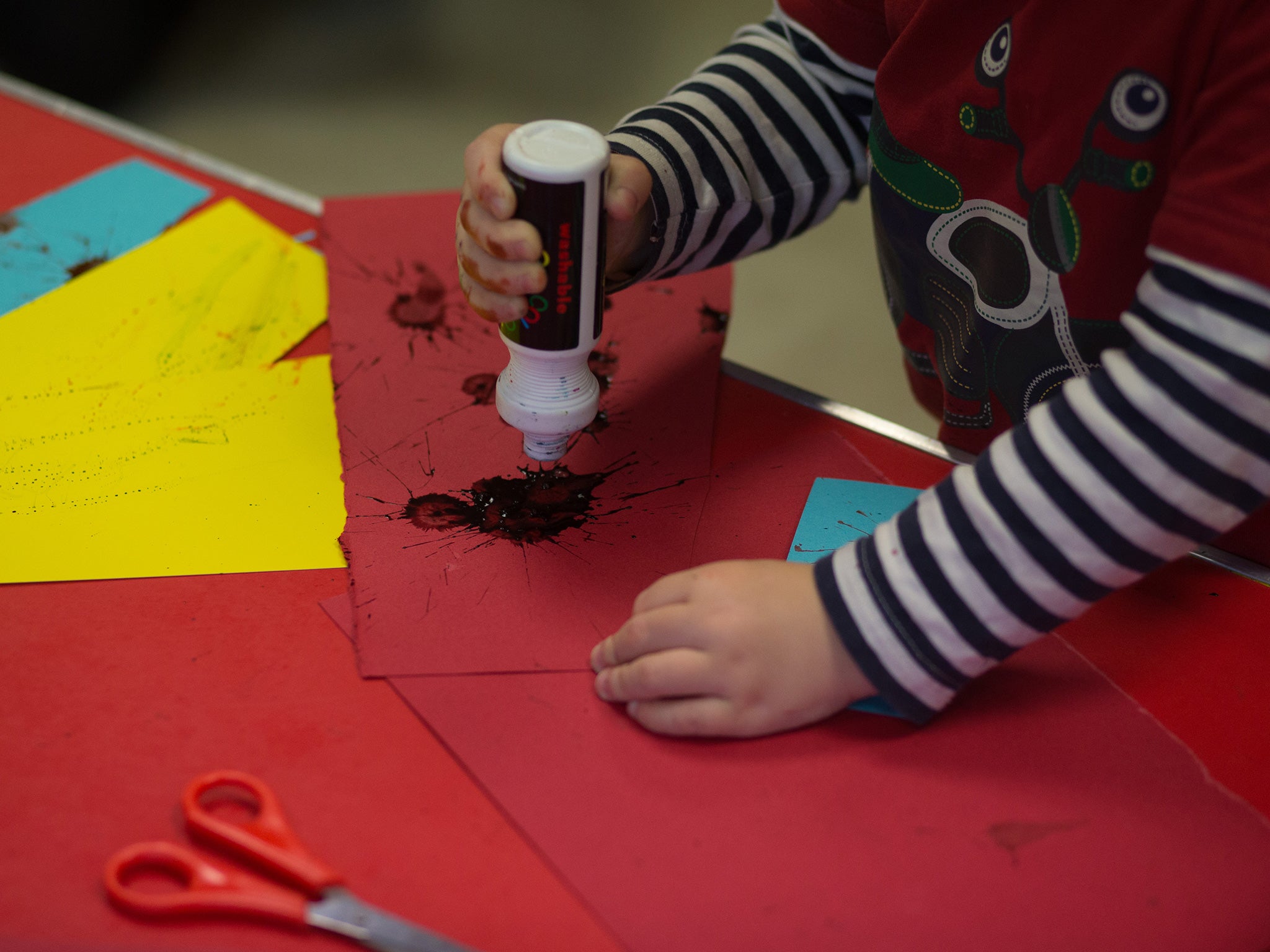Nursery schools have been 'colonised by the middle class', says Ofsted chief
Sir Michael Wilshaw believes the trend preserves a performance gap between middle-class children and those from disadvantaged homes in Britain

Your support helps us to tell the story
From reproductive rights to climate change to Big Tech, The Independent is on the ground when the story is developing. Whether it's investigating the financials of Elon Musk's pro-Trump PAC or producing our latest documentary, 'The A Word', which shines a light on the American women fighting for reproductive rights, we know how important it is to parse out the facts from the messaging.
At such a critical moment in US history, we need reporters on the ground. Your donation allows us to keep sending journalists to speak to both sides of the story.
The Independent is trusted by Americans across the entire political spectrum. And unlike many other quality news outlets, we choose not to lock Americans out of our reporting and analysis with paywalls. We believe quality journalism should be available to everyone, paid for by those who can afford it.
Your support makes all the difference.Nursery schools have been “colonised by the middle class” - ensuring the gap in performance between their children and those from disadvantaged homes remains, chief schools inspector Sir Michael Wilshaw has said.
Sir Michael, the head of education standards watchdog Ofsted, said it meant they were educating children “who would be just as well catered for from an education perspective in a private nursery, a childminder or indeed at home”.
Speaking at the launch of Ofsted’s early years annual report, he added: “It’s the poorer children who stand to benefit the most from this type of environment (a nursery school) at the earliest age. But this is not just happening.”
Figures in the report show that nearly half (42 per cent) of all two-year-olds eligible for 15 hours of free early education under a government scheme to help disadvantaged children have not taken up a place. In effect, that leaves 113,000 disadvantaged children without a nursery place.

The past year, Sir Michael added, had only resulted in a thousand additional two-year-olds in nursery schools. “This represents less than seven additional children in each local authority area,” he added. “That is nowhere near good enough.”
Part of the problem is thought to stem from a lack of awareness amongst parents - which Sir Michael said could be tackled by putting the onus of health visitors to tell parents of their rights.
However, only around 5,000 schools - less than one in three - admit two-year-olds to their nurseries. In addition, there are 40 local authorities with not a single eligible two-year-old in any school.
“Even more importantly, where schools are taking two-year-olds, they are not the most disadvantaged,” Sir Michael added. “Forty-two per cent of two-year-olds in England are eligible for a funded place based mainly on family income. And yet, only nine per cent of two-year=olds in schools are on a funded place.”
He said there was “a yawning gap” in school readiness between the most advantaged and the poorest children - which had remained stubbornly the same at 20 percentage points for the past eight years.
“What this means in practice is that the poorest children asre less likely to be able to follow instructions, make themselves understood, manage their own basic hygiene or play well together,£ he added.
“Let me be clear: what the poorest children need is to be taught, and well taught, from the age of two.
“It seems that school nurseries have been colonised by the middle classes. And who can blame these parents? I’m sure they see the well qualified staff and the appeal of an easy transition to reception and conclude it’s a good option for their children.
“But the reality is these better-off children don’t get any particular advantage from being in a school from the age of two.”
Sir Michael’s comments came against a background of improving standards in early years settings.
Overall, 72 per cent were rated good by inspectors while 13 per cent were found to be outstanding - an increase of 18 percentage points in five years of the number rated good or outstanding. The percentage of children reaching a good level of development between 2013 and 2014 rose from 52 per cent to 60 per cent.
However, Christine Blower, general secretary of the National Union of Teachers, warned: “Whilst ensuring as man children as possible gain access to good quality Early Years provision, it needs to be age appropriate.
“Pupils of every age are under pressure to learn things for which they are not ready.”
Imelda Redmond, chief executive of the 4Children charity, said: “The attainment gap between children in disadvantaged areas and their peers remains worryingly wide.”
Join our commenting forum
Join thought-provoking conversations, follow other Independent readers and see their replies
0Comments